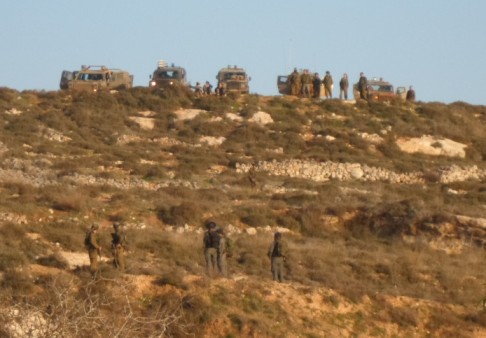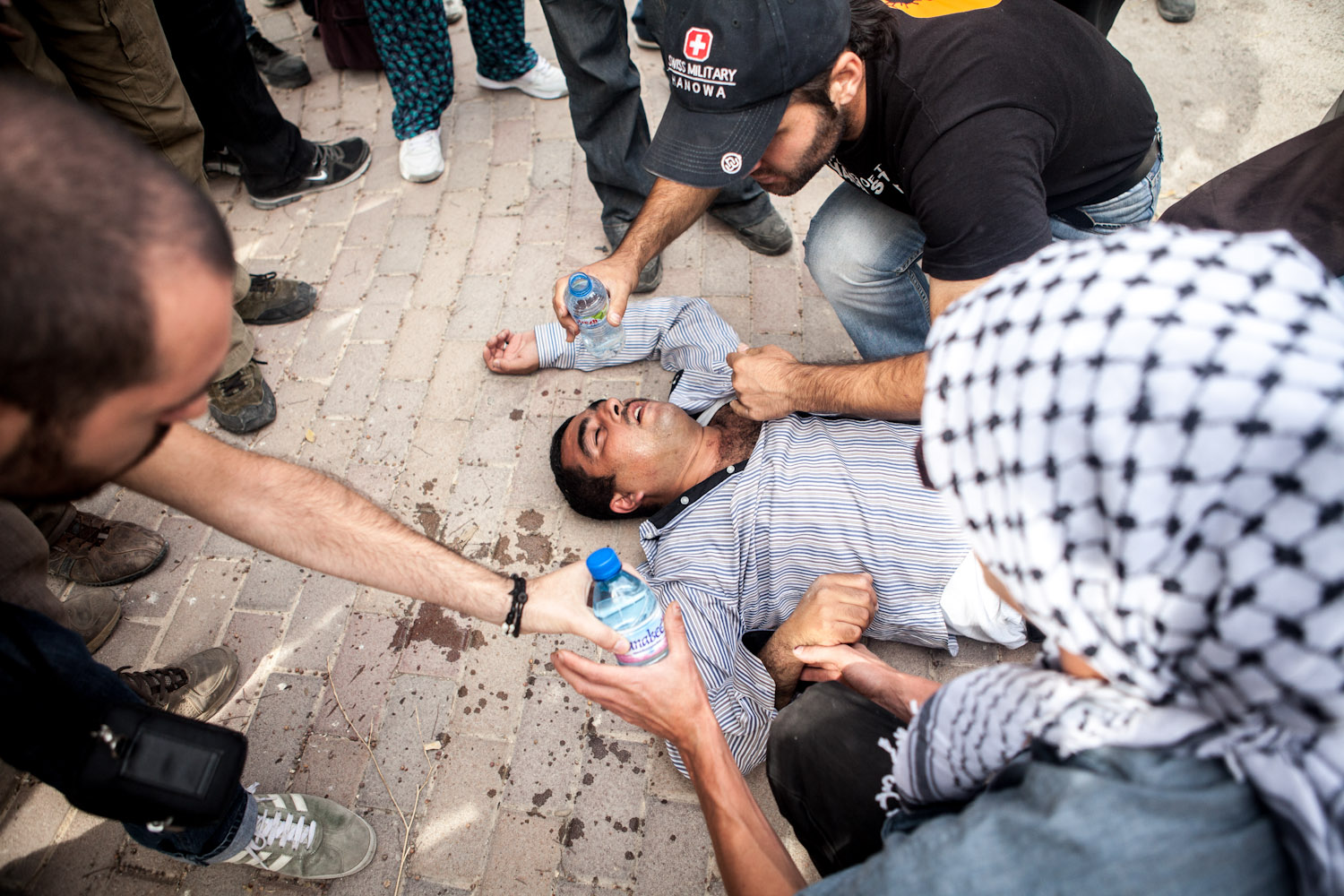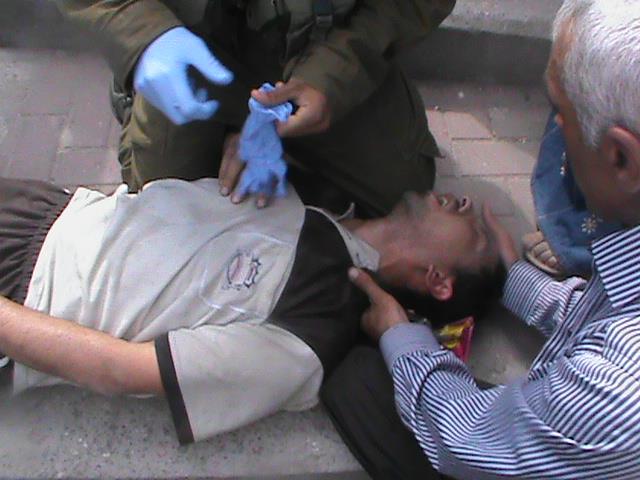Tag: Settlement
-
Urif under attack
26 December 2012 | International Solidarity Movement, Urif, Occupied Palestine Over the past three days, the village of Urif, south of Nablus, has been under constant attack from Israeli settlers and soldiers. Soldiers invaded the village twice and numerous people sustained injuries from rubber-coated steel bullets and tear gas canisters. People in Urif said that…
-
Bassem Tamimi injured and arrested with 3 others at Boycott Israel protest
24 October 2012 | International Solidarity Movement, West Bank VIDEO from the action: Dozens of Palestinians and internationals protest at Rami Levy Supermarket near the illegal settlement of Sha´ar Benyamin on October 24th. This direct action aims to highlight the Boycott-Divestment-Sanctions (BDS) Campaign that seeks to promote a boycott of Israeli goods. Four people, including…
-
Settlers Attack and Injure Palestinians Harvesting Olives in Tel Rumeida
12 October 2012 | International Solidarity Movement, West Bank In two separate incidents on Wednesday 10th and Friday 12th October 2012 settlers from the illegal settlement in Tel Rumeida, Hebron stole olives from two trees belonging to Jawad Abu Eisheh and attacked his family whilst they attempted to harvest from their land. Between 2pm and…



